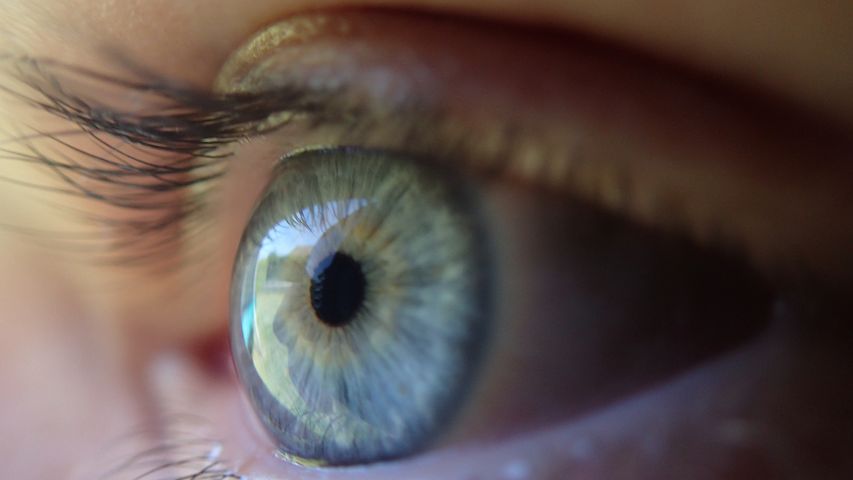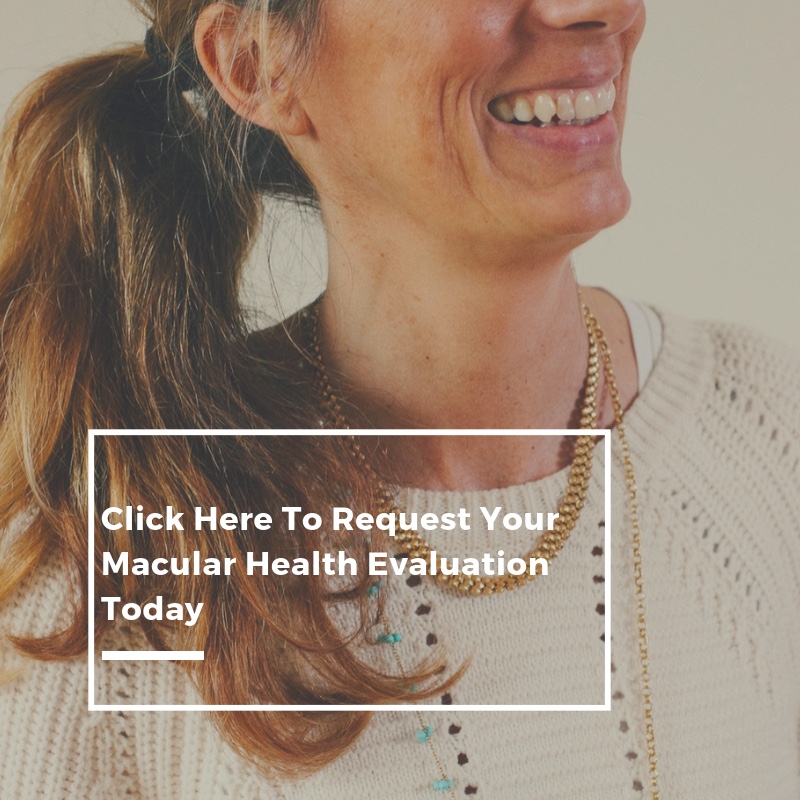What Is Macular Degeneration Of The Eye?

Imagine for a moment that reading was to become very difficult, the words on the page blurry, and your glasses didn’t help. Or try to envision what it would be like to look at your child and see their hair and ears, but not the middle of their face. What if a musician suddenly could not read his music, or an artist could no longer see what she was painting? These everyday interactions that most of us take for granted are just a few examples of ways macular degeneration can seriously affect a person’s quality of life.
So just what is macular degeneration of the eye, and what can we do about it?
What is Macular Degeneration of the Eye?
Macular degeneration of the eye is an ocular disease that has the potential to steal your central vision. But to really understand macular degeneration, it’s important to first understand what your macula itself is.
One Small Player, Huge Team Effects
Your macula is a very small part of your retina, which is the back layer of your eye.
Although it’s an extremely small organ, it’s responsible for all of your central vision.
Your fine visual acuities, reading, driving, and anything else you try to focus on or see minute details of is all controlled by your macula. It’s a tiny team member that affects a huge part of your overall vision.
Macular Degeneration Of The Eye: Two Types
When we’re asking “what is macular degeneration of the eye?”, the answer may depend. Macular degeneration can present itself in one of two forms: wet or dry. So if you or a loved one has been diagnosed with macular degeneration of the eye, it’s important to know which type you are dealing with.
Dry Macular Degeneration
Dry macular degeneration is the more common, and also less destructive of the two types. Different factors can, over time, cause the retina to begin to break down.
The cells inside the macula become sick, and in an attempt to heal themselves, they produce fatty deposits called drusen, which can distort your vision.
If you want to think about it in terms we can all identify with, these sick cells are essentially throwing up inside of the retina. But instead of this making the cells better, it actually wreaks more havoc inside of the eye.
Although there is no official treatment for dry macular degeneration of the eye, vitamins can help to manage it, and may also reduce the chances of the dry form turning into the more harmful wet form.
Wet Macular Degeneration
About 1 in 10 cases of macular degeneration turn from dry to wet. The damaged retina can get to the point where it actually begins to break apart.
Remember again that the cells of the retina become sick. As drusen is produced and the cells break down, the retina becomes deprived of oxygen. The body responds to this by growing new blood vessels to supply oxygen to the retina. However, this is just another failed attempt at healing.
The young and weak blood vessels often break and leak blood and fluid into the macula. Blood is toxic to the delicate cells of the retina, and vision continues to decrease. When macular degeneration becomes wet, ophthalmologists will treat it with different injections to try to stop the bleeding.
Who Will Develop Macular Degeneration Of The Eye?
Multiple factors can contribute to developing macular degeneration, either wet or dry.
Exposure to sunlight and UV rays, smoking or secondhand smoke, aging, and genetics can all affect who develops the disease.
Also, Caucasians, especially those with light complexions and light eyes, are more susceptible to macular degeneration. This is because lighter eyes indicate less pigment in the eyes to protect the macula.
What Can We Do To Prevent Macular Degeneration Of The Eye?
The very best thing you can do when it comes to macular degeneration of the eye is to take preventative measures.
1. Always wear sun wear to guard against UV rays.
2. Avoid smoking.
3. Eat plenty of green leafy vegetables and egg yolks, which are rich in nutrients that help replenish the pigment in your eyes.
4. Take care of your cardiovascular health by exercising regularly.
5. If your eyes are light colored, consider taking the supplement lutein. Lutein is more of the same nutrient found in certain foods that will help to replenish retinal pigment.
6. If your eye doctor informs you that mild changes have occurred in your retina, begin taking lutein or Macuhealth supplements.
7. If the changes in your retina become a bit more advanced but the macular degeneration is still dry, your doctor may prescribe AREDS 2 vitamins, which are more complex vitamins to supplement your diet and healthy lifestyle.
Take Action Today
Don’t lose your vision to macular degeneration of the eyes. Though some people will, unfortunately, deal with the disease due to genetics and aging, take control of what you can. Through a healthy lifestyle and wise choices now, you may be able to save precious sight in the future.
At Vision Source Meadville, we want to give you what you need to protect your vision from macular degeneration. Call us today to set up an eye health exam, or stop in to browse our selection of protective sun wear and eye health vitamins.

